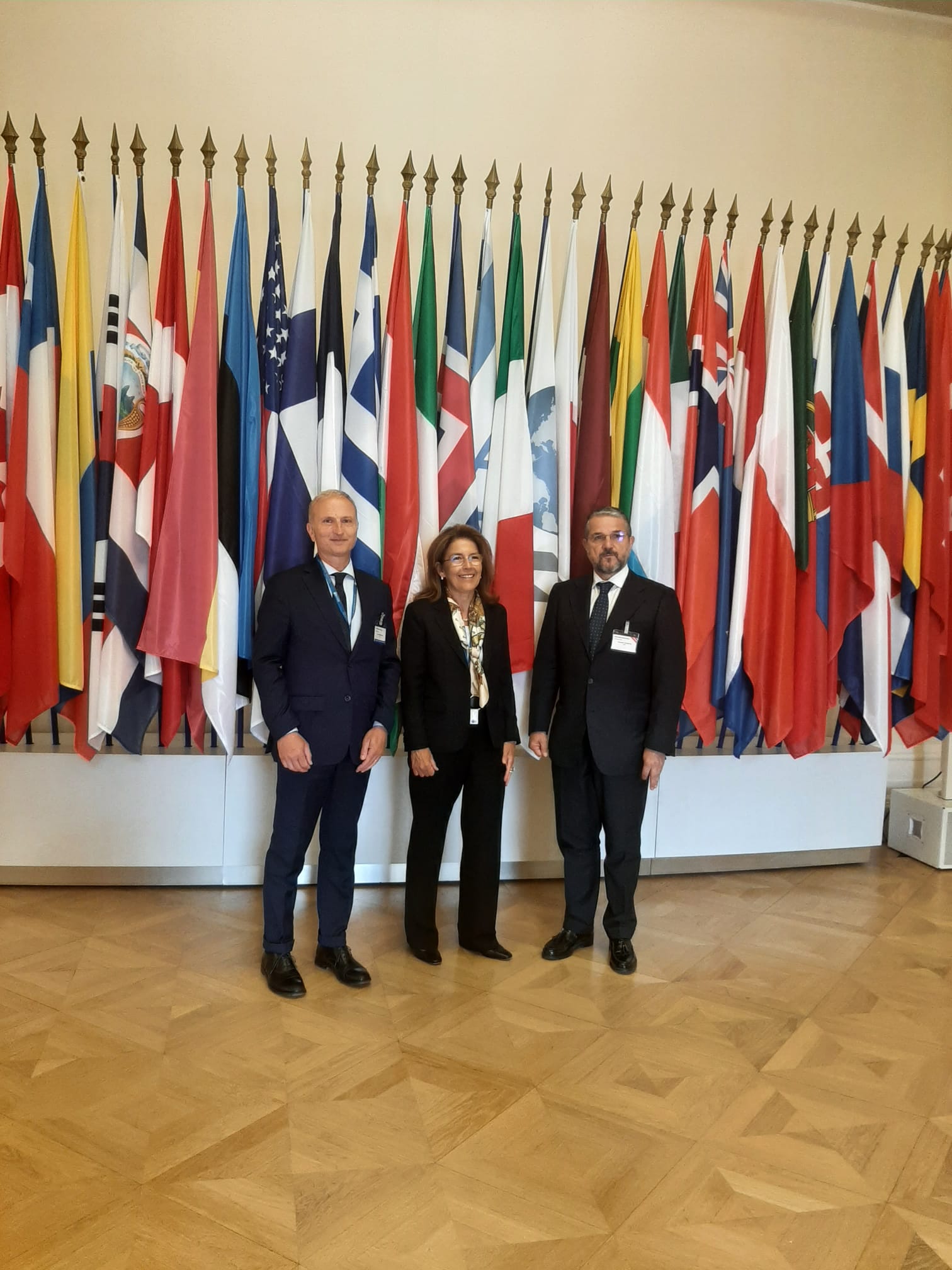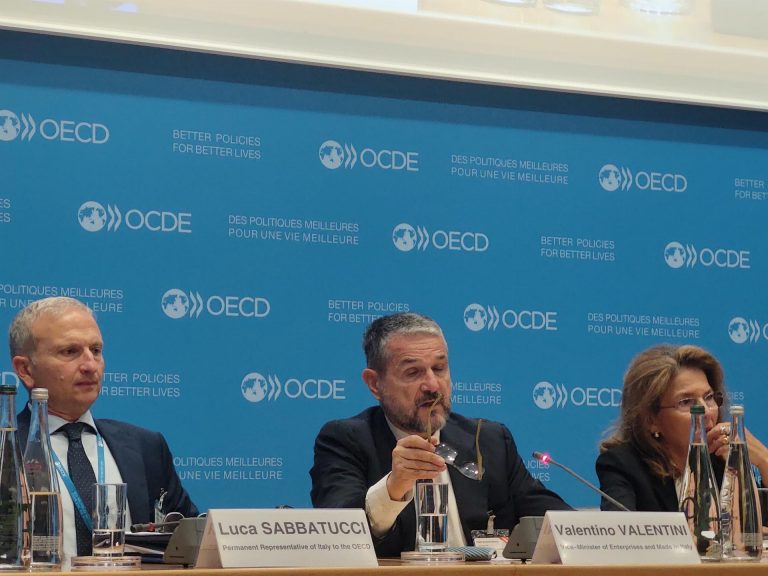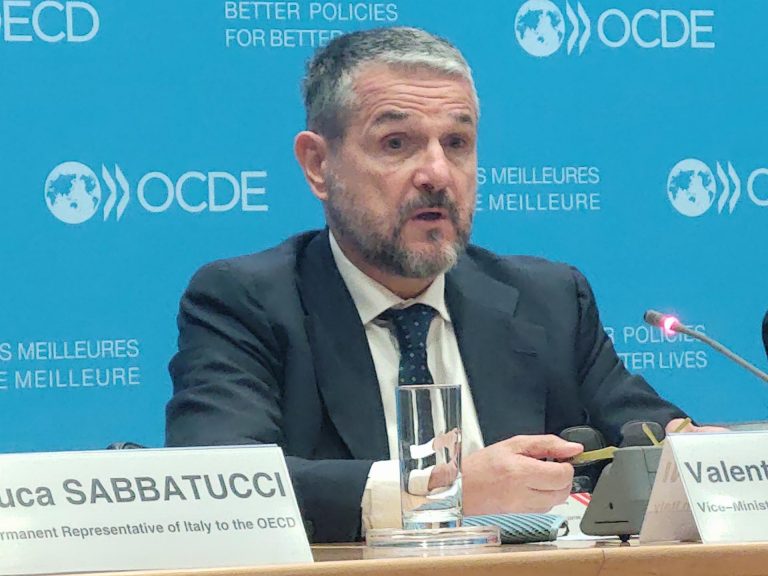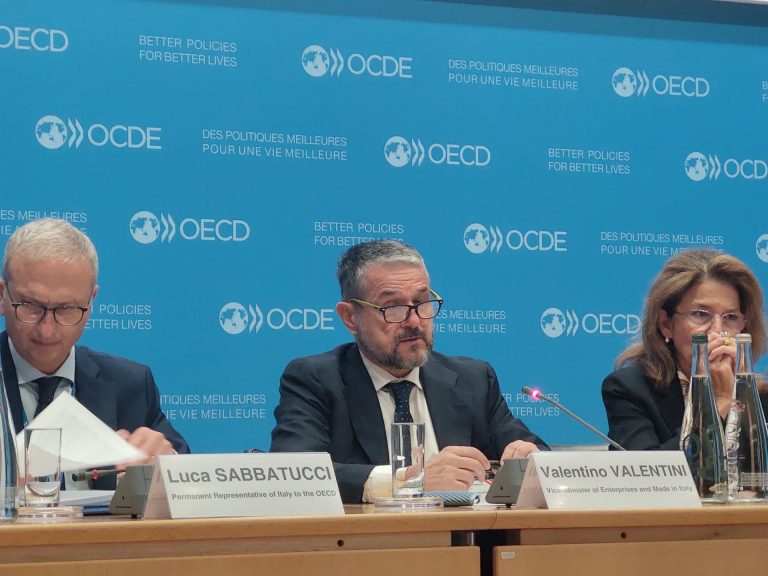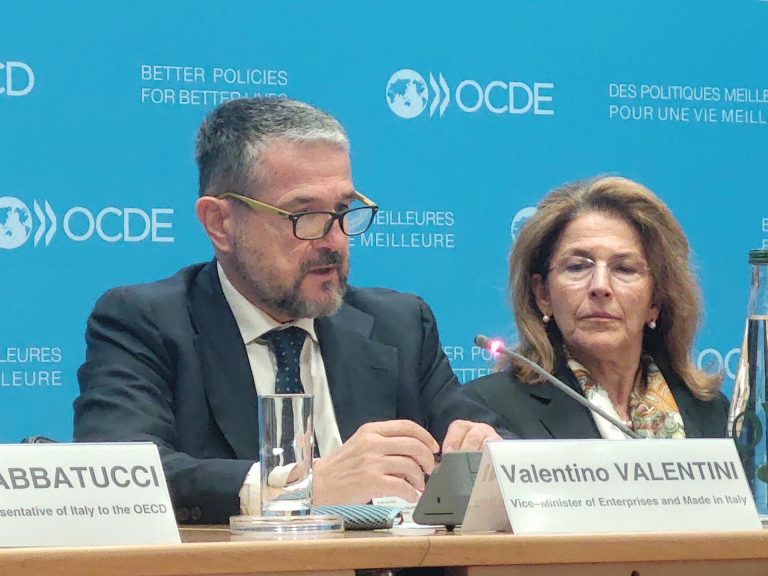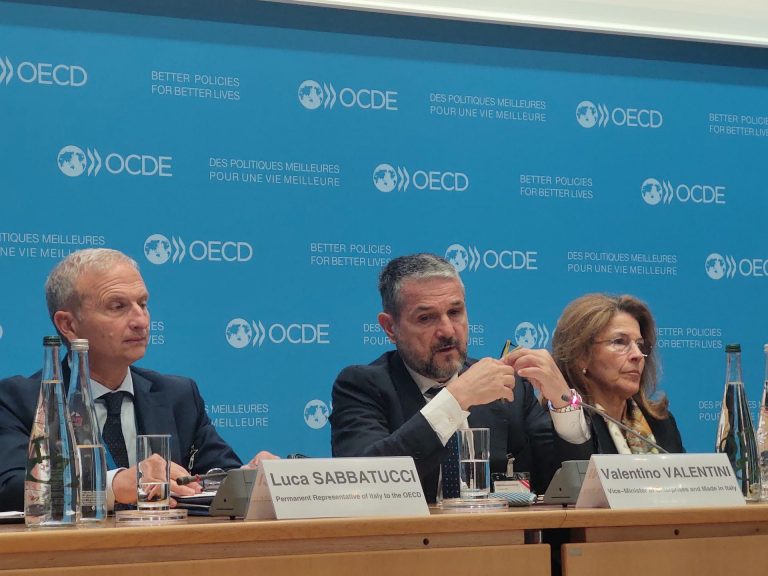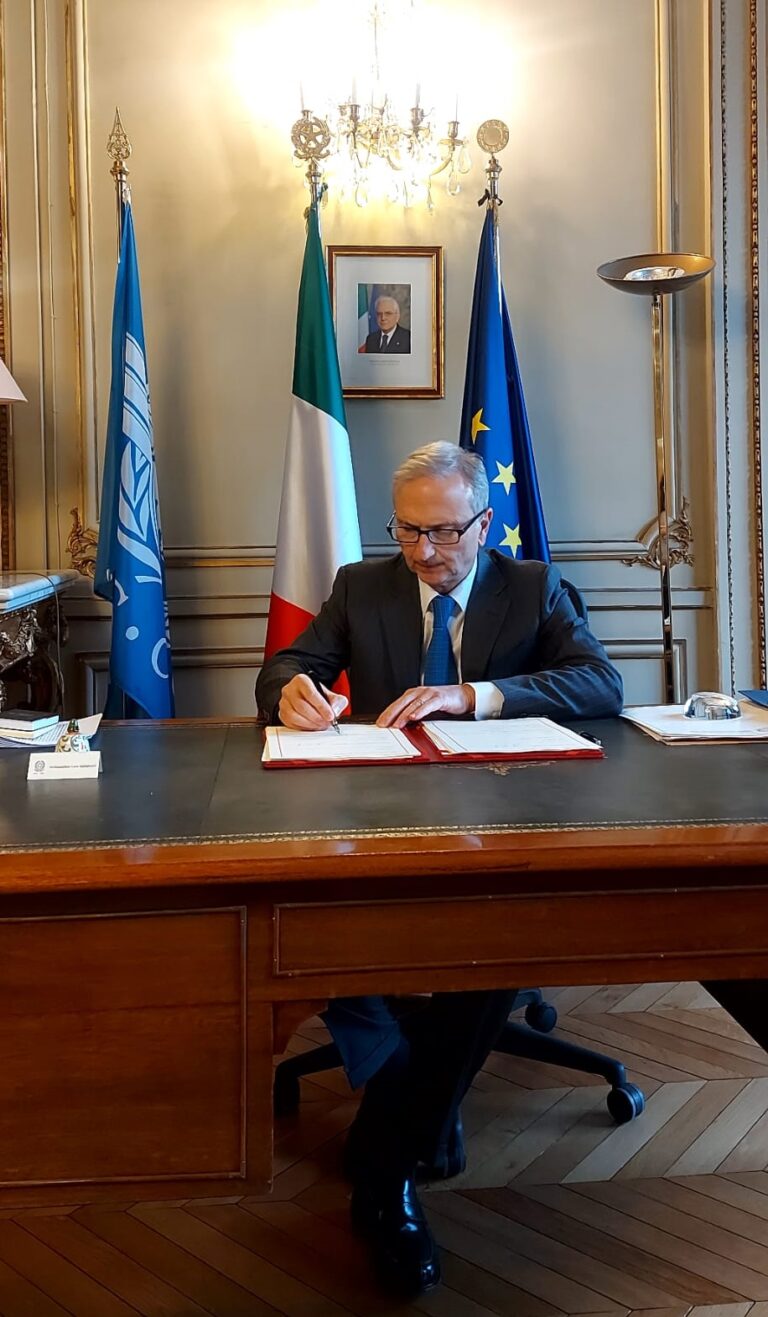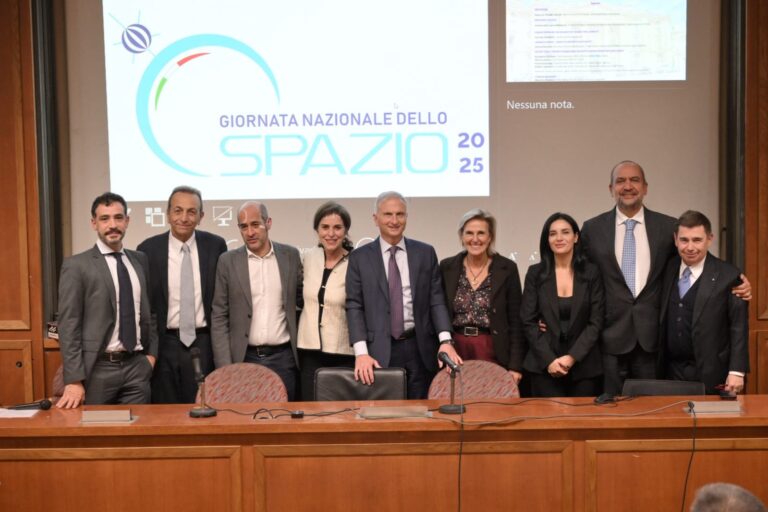Governments must also support SMEs with incentives to seize the opportunity of the green and digital transition is the message launched by the Deputy Minister of Enterprise and Made in Italy Valentino Valentini during the work session he presided over. The deputy minister recalled that SMEs “are those who pay the most dearly for the loss of global competitiveness, in an era in which state subsidies have returned to alter international trade. And this problem concerns all countries The solution is to work on two fronts: the macro and the micro. At the micro level, each company must face the need to have qualified personnel, access credit, deal with the bureaucracy necessary to operate. At the macro level, there are industrial policies , which impact on the activity of small companies, indicated the Deputy Minister in one of the sessions he chaired.
The work of institutions, such as the OECD, is therefore important, as they can provide SMEs with the tools to understand what is happening at the macro level and assess their impact, helping both policy makers and businesses to adopt appropriate adaptation measures”. As far as the Italian government is concerned, Mimit together with the OECD has developed a Study Center to analyze data on SMEs, with particular attention to start-ups, and offer the government proposals to better address the different needs of companies and increase capacity response of public authorities to economic or industrial shocks. In the Ministerial Declaration approved by all the delegations participating in Paris, the condemnation of “Russia’s unjustifiable, unprovoked and illegal war of aggression against Ukraine” is reaffirmed and support for the population is reaffirmed.
In stepping up efforts to implement the UN 2030 Agenda for Sustainability as well as the Paris Agreement, SMEs recognize the “wide diversity” of businesses and the “unprecedented challenges” they face face as a result of the COVID-19 pandemic and the conflict. For this “we reaffirm our commitment to strengthen SME and entrepreneurship policy, as enshrined in the OECD Recommendation on the subject adopted by the Council in 2022, a single international standard to support a coherent and strategic approach by governments to policies for SMEs and entrepreneurship”, facilitating “the transition and resilience of SMEs” and improving “access to resources”. On the sidelines of the OECD ministerial dedicated to SMEs and entrepreneurship, the deputy secretary general of the OECD, Fabrizia La Pecorella and other senior officials of the organization. At the center of the talks was the issue of critical raw materials, SMEs and the twin transition, on which the OECD has produced various studies and analyses, available to governments and businesses. “Tackling global challenges requires a holistic approach, which allows us to approach problems from all angles,” said Valentini. Thanks to the presence of highly specialized officials, the OECD is able to offer multidisciplinary contributions, which are valuable for guiding the policy choices of its Member States. Examples of the organization’s virtuous collaboration with Italy are the “Closing the Digital Gap” study carried out in collaboration with Mimit, ISTAT and the Bank of Italy; the participation of Mimit in the Quantifying Industrial Strategies; the OECD report “Boosting Evidence-based policy making in Italy” presented last June in the presence of Minister Adolfo Urso. To support SMEs in facing the challenges of the future, the OECD deems a constant upskilling and reskilling process as well as adequate credit access mechanisms necessary. In this context, the OECD has invited Italy to join a project that favors the upskilling of human capital employed in companies, through a growing interconnection between the academic world and the industrial world, as well as a project involving development banks and ensures better coordination of their initiatives



